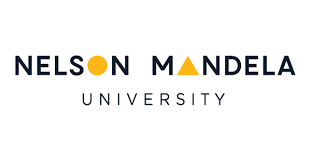Nelson Mandela University: Master’s degree in Maritime Management for a new generation of maritime leaders
The Nelson Mandela University Business School is proud to launch its new Master of Maritime Management (MMM) postgraduate degree.
The MMM degree is designed to empower a new generation of maritime leaders with management skills to grow the maritime sector in the African region and navigate the challenges of the ever-growing global maritime business industry.
Benchmarking against the best in the world, the cutting-edge degree – which commences in 2023 – is designed to provide strategic business skills and knowledge for current maritime professionals working in the maritime sector and related supply chain industries, including offshore and land-based activities.
Nelson Mandela University Graduate School Director, Dr Sam February, said the master’s programme comes at the right time to deal with the 4th Industrial Revolution more effectively to ensure that organisations within the maritime industry remain at the forefront of development.
“The Master of Maritime Management is geared towards equipping maritime professionals with the necessary leadership skills to deal effectively with the challenges offered by this constant evolution of the industry. It not only provides new managerial competencies, but it also allows the participants to contribute to the maritime industry from a research perspective with strong potential for internationalisation,” said Dr February.
He said exciting research opportunities exist for the programme that could lead to further valuable PhD research to promote and transform the maritime industry in the region and continent.
“This programme offers research opportunities that relates directly to the technology impact on the maritime sector, globalisation and sustainability but to mention a few. We are most excited about this programme as it will create a new, significant and outstanding breed of maritime leaders, able to efficiently deal with current and future challenges in the maritime sector,” said Dr February.
All-female crew
Dr Jessica Fraser joins an all-female team of local and international lecturers who are lined up to teach on the maritime master’s qualification in 2023 and describes herself as a catalyst of the programme. She says the choice of an all-female team was deliberate.
“Women are under-represented in the maritime industry. To redress this imbalance, we wanted to start the programme by showcasing the existing talent. Putting the right building blocks in place from the outset, will work towards women being role models for the next generation in the maritime industry. Amongst the integrated modes of transport, maritime business is considered to be the last frontier,” said Dr Fraser.
Asked whether the maritime master’s graduates will make a difference in growing the oceans economy and international business in the region, Fraser was confident the programme was a step in the right direction.
“The qualification is a complete formal degree that unbundles international trade from an emerging economy perspective. It focuses on ethical, sustainable, and innovative management practice, positioning graduates with the necessary skills and confidence to lead the way. It is designed to show students the global perspective and help professionals to grow the economy and in turn, create jobs,” said Dr Fraser.
In pursuit of the University’s vision to become a dynamic, African University, Faculty of Business and Economic Sciences Executive Dean, Prof Hendrik Lloyd, said the new qualification also aligns with the Ocean Sciences strategic initiative of the University.
“It is of great strategic value to the national and specifically our provincial economy, with three ports being operated within the Eastern Cape. We are excited about this new postgraduate programme and see it as part of a larger portfolio of existing postgraduate maritime qualifications in the Faculty of Business and Economic Sciences. It adds to the high-level strategic management and leadership competencies, as provided by our Business School with a strong focus on innovation and sustainability,” said Prof Lloyd.
Candidates are subject to selection based on five-years’ work-related experience or three-years’ maritime business-related or management experience. The degree, offered over a minimum period of 18 months, is a combination of both theoretical and applied research methodology modules and practical experiences from industry leaders.

